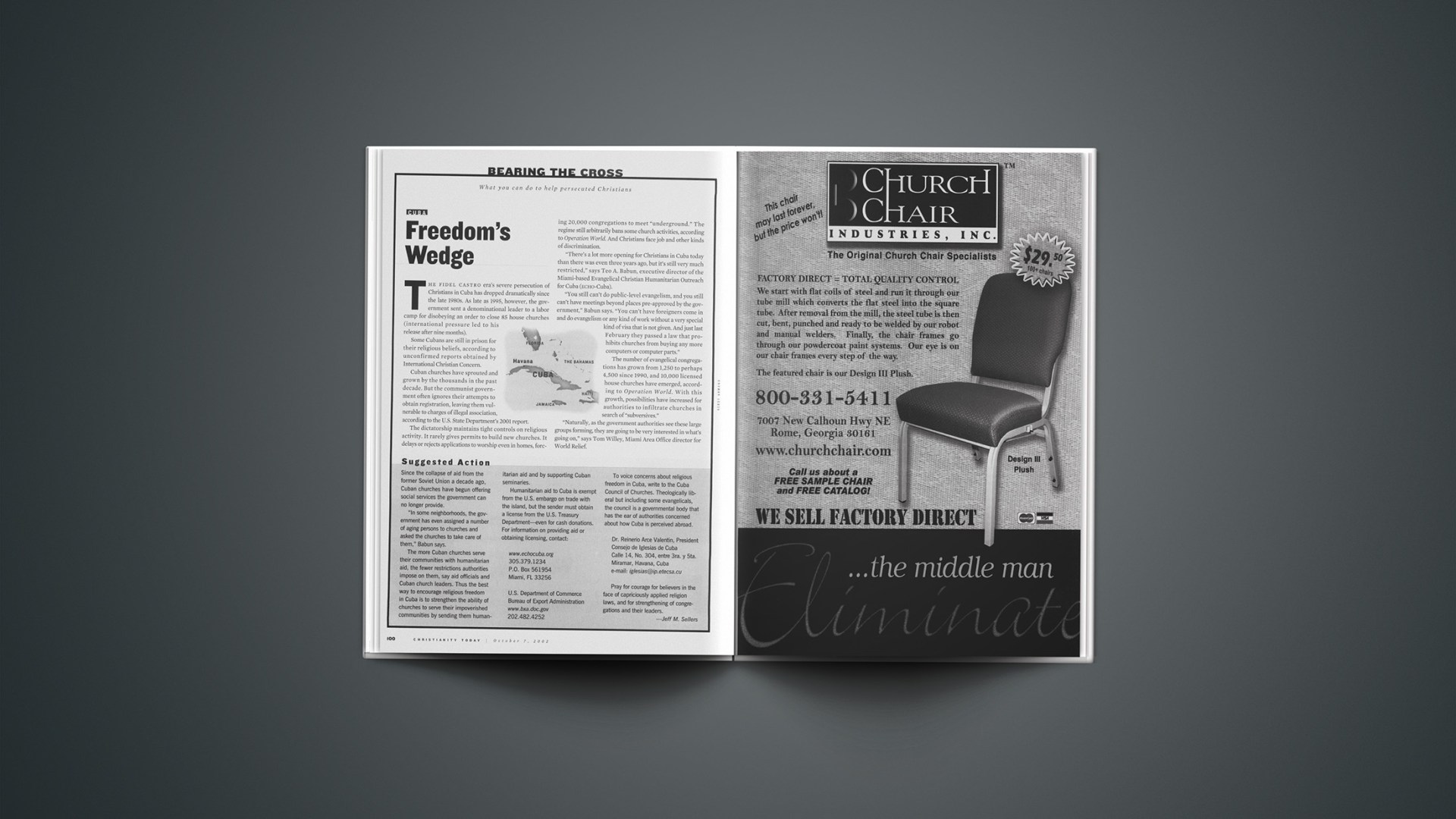The Fidel Castro era’s severe persecution of Christians in Cuba has dropped dramatically since the late 1980s. As late as 1995, however, the government sent a denominational leader to a labor camp for disobeying an order to close 85 house churches (international pressure led to his release after nine months).
Some Cubans are still in prison for their religious beliefs, according to unconfirmed reports obtained by International Christian Concern.
Cuban churches have sprouted and grown by the thousands in the past decade. But the communist government often ignores their attempts to obtain registration, leaving them vulnerable to charges of illegal association, according to the U.S. State Department’s 2001 report.
The dictatorship maintains tight controls on religious activity. It rarely gives permits to build new churches. It delays or rejects applications to worship even in homes, forcing 20,000 congregations to meet “underground.” The regime still arbitrarily bans some church activities, according to Operation World. And Christians face job and other kinds of discrimination.
“There’s a lot more opening for Christians in Cuba today than there was even three years ago, but it’s still very much restricted,” says Teo A. Babun, executive director of the Miami-based Evangelical Christian Humanitarian Outreach for Cuba (ECHO-Cuba).
“You still can’t do public-level evangelism, and you still can’t have meetings beyond places pre-approved by the government,” Babun says. “You can’t have foreigners come in and do evangelism or any kind of work without a very special kind of visa that is not given. And just last February they passed a law that prohibits churches from buying any more computers or computer parts.”
The number of evangelical congregations has grown from 1,250 to perhaps 4,500 since 1990, and 10,000 licensed house churches have emerged, according to Operation World. With this growth, possibilities have increased for authorities to infiltrate churches in search of “subversives.”
“Naturally, as the government authorities see these large groups forming, they are going to be very interested in what’s going on,” says Tom Willey, Miami Area Office director for World Relief.
Related Elsewhere
The International Religious Freedom Report 2002 on Cuba says, “The Constitution recognizes the right of citizens to profess and practice any religious belief within the framework of respect for the law; however, in law and in practice, the Government places restrictions on freedom of religion.”
Our earlier coverage of Cuba includes:
After CastroChurch leaders worry that aid chaos will follow dictator’s death. (October 1, 2002)
Family Over FreedomWith Elián returned to his father, Cuban Christians say he should come home. Are they being honest, or fearful of reprisals? (April 27, 2000)
Send Elián Home, Say Cuba’s EvangelicalsChurch leaders who don’t usually agree with Castro or the Cuban Council of Churches say family comes first. (April 3, 2000)
The War for EliánMiami churches protest NCC efforts to return Elián González to Cuba (Feb. 25, 2000)
Cuba’s Next RevolutionHow Christians are reshaping Castro’s communist stronghold (cover story, Jan. 12, 1998)
Cuban Catholics Make Gains, but Protestant Rights Limited (Feb. 8, 1999)
Cuba’s Evangelicals Come Up for Air (June 14, 1999)
For more on Cuba, see Yahoo full coverage.










